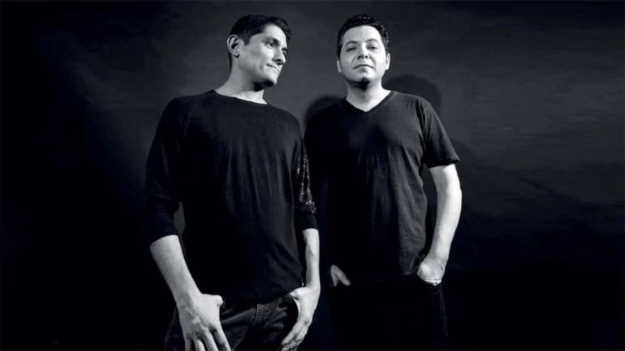| |
Taken from India Today (Aug 30, 2019)
Survival of the Hippest
Much like their sound, Tapan and Gaurav of Midival Punditz refuse to grow old.
by Anurag Tagat

Midival Punditz: Tapan Raj (left) and Gaurav Raina |
For over two decades, New Delhi electronica duo Midival Punditz have remained at the forefront of the country's dance music circuit. By 2007 itself, they had ticked all the usual boxes you're likely to find on a musician's bucket list-scoring for a film, a world tour, critical acclaim. Now, even with four albums in their discography, producers and DJs Gaurav Raina and Tapan Raj continue to challenge themselves.
Raina, who also runs his own label, Gravity Sounds, teamed up with singer-producer and keyboardist Tarana Marwah aka Komorebi to compose music for the web show Made in Heaven. They originally wrote their latest single 'Rootha Yaar' during these sessions, but Raina then took it to Raj for the Midival sound. Raina says, "We felt that the track which was originally composed needed some old-school flavour in the lyrics."
Featuring classical vocalist Sukanya Chattopadhyay's distinctive croon and lyrics inspired by poet and philosopher Bulleh Shah, the track was first road-tested live. Raj adds, "While the track was in the formation phase, we played out our version at a couple of DJ sets to check the crowd reactions." Once finalised, they called on friends in the electronic music scene-UK-based Gaudi, BLOT!, Curtain Blue and Komorebi as well-to add their distinct remixes to form a five-track EP, released in July.
Influenced by Indian folk music, the signature style of Midival is heard on 'Rootha Yaar' after a gap of four years. (Though they did work on 'Train Song' with long-time collaborator Karsh Kale for Gully Boy, their album Light had released in 2015). It's a style they'll employ even in their next EP Nukhta featuring Rajasthani vocal powerhouse Kutle Khan, released on August 30.
Even as electronic music and its subgenres made its way into mainstream consciousness, Raina says they also "listened and changed along with it", while "being honest in what we express musically". He adds, "We are constantly hearing and embracing new styles that come and go, finding our own language of expression within them."
|
|